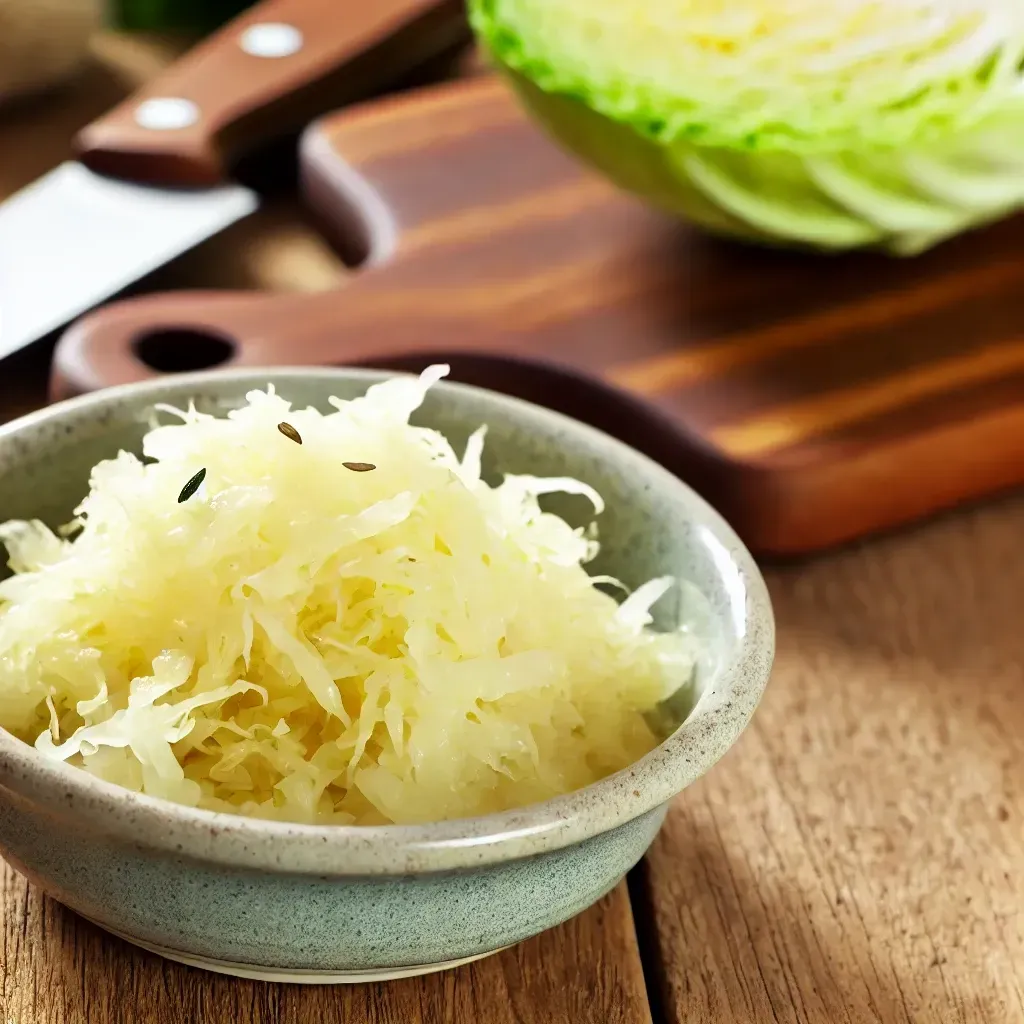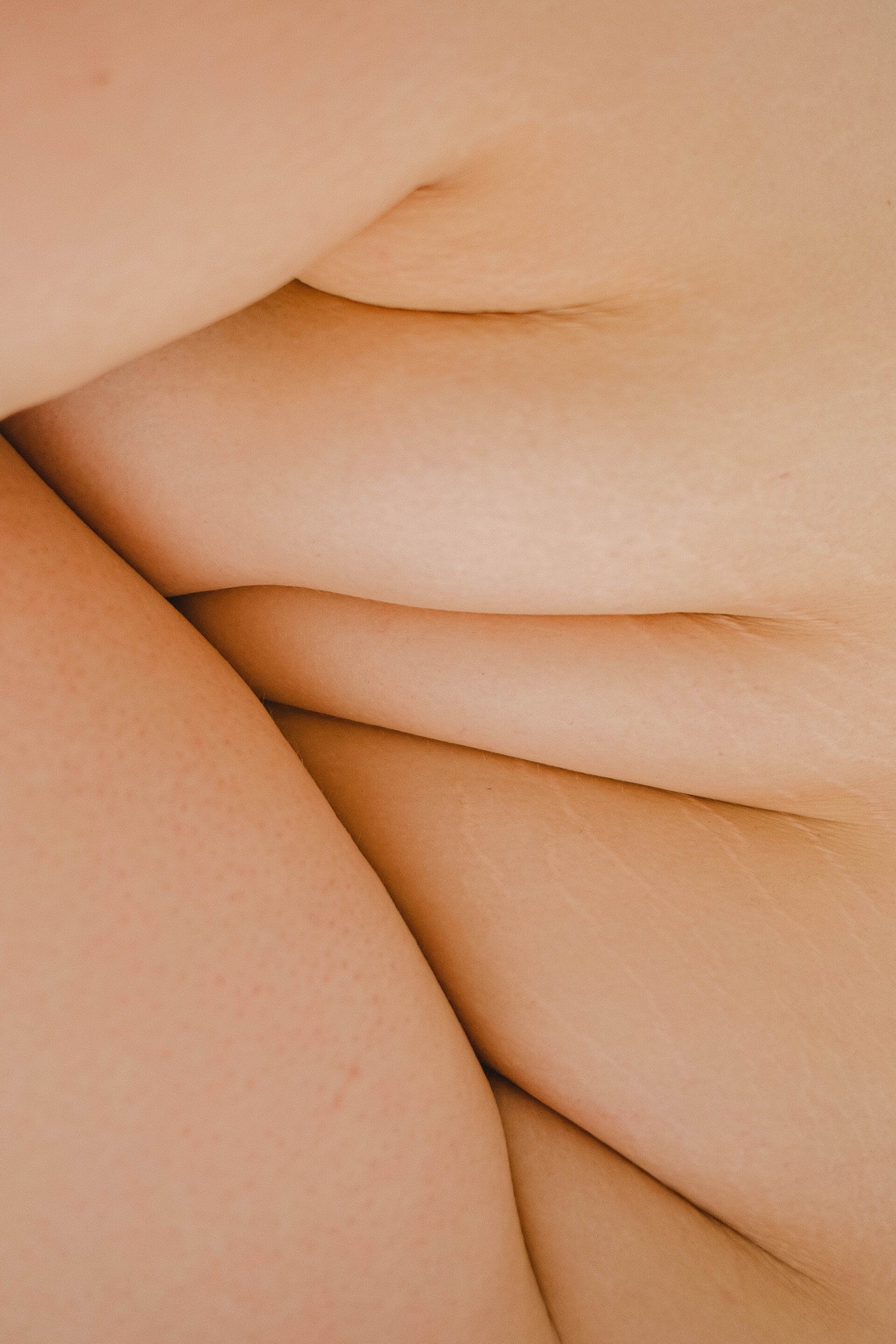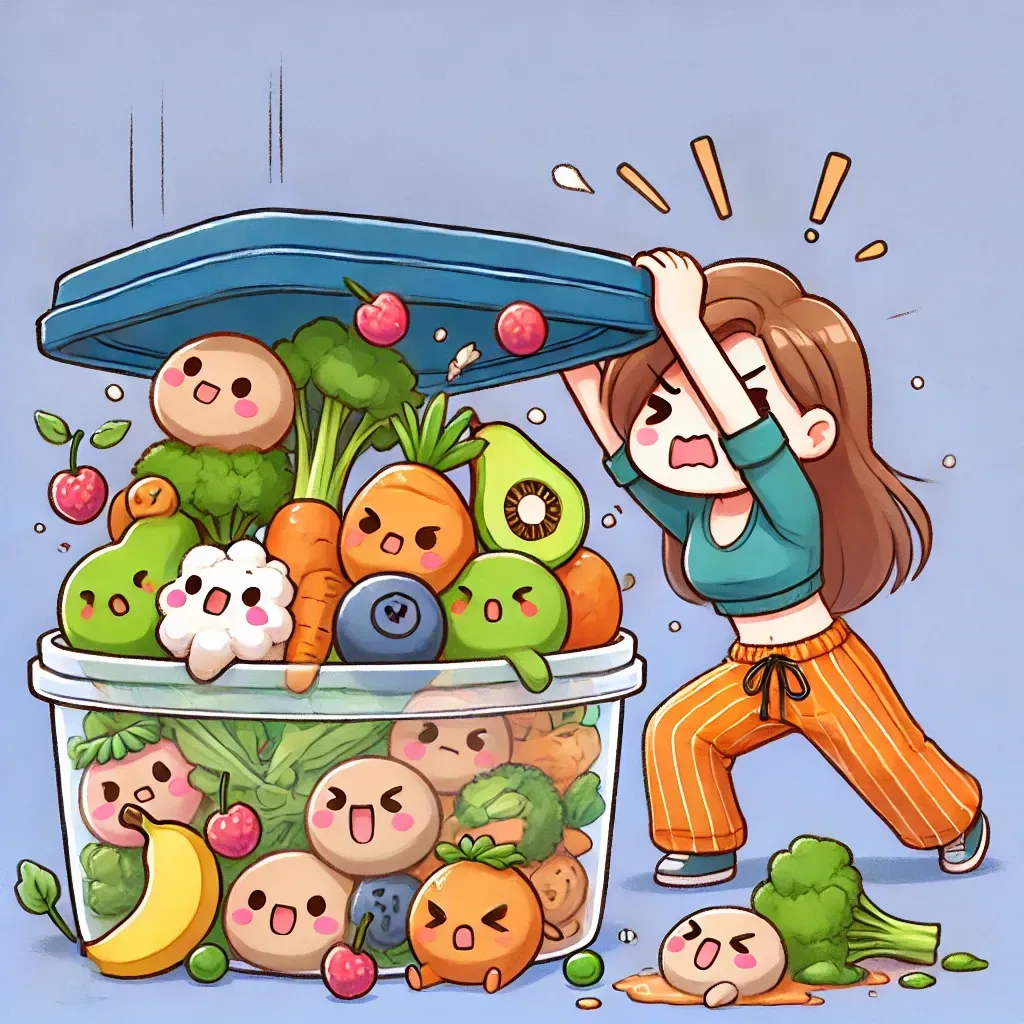The Gallbladder: Small Organ, Big Responsibility
We Need Our Gallbladders! Read on to find out why
Does it seem like the human body is overloaded with an excess of organs? Tonsils, two kidneys, an appendix, a whole stomach, a whole colon, a spleen, wisdom teeth (okay, wisdom teeth not organs--but seriously, why do we have them?!). The body can function just fine with the removal of some or part of these organs. But what about the gallbladder?
According to an article in the NY Times, more than 600,000 cholecystectomies (gallbladder removal surgeries) are performed EVERY YEAR [1]. That number is crazy! Yes, some of them are necessary, but in Ute Mitchell’s case, it was just part of the “package deal” when undergoing liver surgery. Mitchell, a fellow nutritional therapist, needed a large part of her liver removed, so the doctors took her gallbladder, too. It wasn’t until after the surgery that she actually learned about the importance of the gallbladder and its very big responsibility in the digestion process.
After extensive research, Mitchell accurately and succinctly describes the function of the gallbladder, as well as what happens to this process after a cholecystectomy [2]:
The liver, our body’s powerhouse, produces bile, which is stored in the gallbladder until food enters the small intestine. The gallbladder receives a signal to release bile, which breaks down fats into fatty acids. Without the gallbladder, the liver continues to produce bile and it trickles into the small intestine at all times. In many humans this means that there won’t be enough bile to break down fats, [which] in turn leads to the excretion of these fats, usually as diarrhea.
Gallbladder removal decreases metabolic effects as well as increases the risk of many health issues including but not limited to [3]:
- Nonalcoholic fatty liver disease
- Cirrhosis (liver fibroides)
- Small intestine carcinoid (tumors)
Once the gallbladder has been removed, a change in diet is necessary to avoid the aforementioned health concerns. Many major medical websites tend to recommend a low fat diet to patients, but this is NOT the way to go.
Low fat diets have a tendency to slow bile excretion from the liver, which can lead to cysts in the liver and stones in the gallbladder.
Mitchell recommends the following diet for everyone who has undergone a cholecystectomy [2]:
1) Bile salts: Take them a few minutes before each meal. You do not have to pass on butter or coconut oil, just increase your dose of bile salts before a higher fat meal. You can purchase these through my Wellevate Shop -- free 2-day shipping with a purchase of $49 or more!
2) Liver Flush: Please check with your doctor before you do a flush. The liver flush by “The Liver Doctor” to be extremely helpful for my overall well-being, and my liver surgeon did not have any concerns about it.
3) Raw Vegetables: You don’t have to become a vegetarian, but increase your amount of raw veggies. Your gut and liver will thank you.
4) Milk Thistle and Dandelion Tea: These are great for the liver. And a healthy liver produces better bile.
5) Spicy Foods: Mustard, garlic, and horseradish – all of these are great for the liver and bile ducts.
6) Water: Need I say more? Water is the most abundant macronutrient in our bodies. Its many benefits cannot all be listed here. Just take my word it (and the word of every single other health or medical professional ever).
Mitchell made these changes to her diet and started seeing positive results almost immediately:
24 hours - diarrhea gone
A few days - stomach ache and heartburn gone
A few weeks - pain-free
The power of a good diet is incredible.
Want to avoid ever having the need for gallbladder surgery? Try a Paleo or Primal diet. Ask me (Heidi) for some good suggestions on this.
https://www.nytimes.com/1995/05/31/us/personal-health-gallbladder-surgery-is-easier-is-it-too-common.html
https://paleoflourish.com/humans-need-gallbladders-guest-post-ute-mitchell/?fbclid=IwAR1Il-56DCVewPcm324LG39ygXFM11bIqteZ9iorLpZRzuYSJx9LPCDUlJc
https://www.ncbi.nlm.nih.gov/pubmed/27347902
Don't Miss Out On More!

Heidi Toy FNTP
I help people all over the world heal by identifying and treating the root cause of their body imbalances. Through diet and nutrition, I guide them towards wholeness and balanced lives.
Heidi Toy Functional Medicine Blog

For many of us, our experience with food comes with some sort of baggage. Maybe you eat to cope with stress, anxiety or depression. Maybe you’ve grown up with value-words placed on food such as “junk” and “healthy,” and told you couldn’t eat the “good stuff” (brownies and ice cream) until you finished the “yucky stuff” (broccoli and lettuce). Or, even more serious, maybe you or a loved one has struggled or is struggling with an eating disorder. Food is amazing and life-giving. It can be used as a means to celebrate, socialize, or simply just provide fuel for the body. Our relationship with food shouldn’t be a difficult one, it should be an enjoyable one. A way to get to that healthy place in your relationship is to practice mindful eating. Mindfulness is a Buddhist concept of mediation that can help you recognize emotions and physical sensations present. Through mindful eating, you can learn to truly pay attention to your experiences, cravings and physical cues. The basics of mindful eating are: Eat slowly, without distraction. If you are eating with others, take a least five minutes at the start of the meal to enjoy the food on your plate before engaging in discussion. Pay attention to your body--are you still hungry, or are you getting full? Learn to distinguish between cravings and true hunger. Use all your senses when you sit down to a meal. Make an effort to notice how the food looks, smells, tastes, feels in your mouth, and sounds when you chew. Appreciate your food, who has prepared it (even if it’s you--what an accomplishment!), and where it comes from. Being mindful of your experience will help you slow down while eating. This can prevent overindulgence by making the act of eating intentional instead of automatic. It will also help you become aware of triggers that make you want to eat (are you truly hungry at 9pm every night when you sit down to watch that Netflix show, or do you just pour yourself a bowl of Chex Mix because that’s what you always do?). Knowing your triggers can give you time to process what’s truly going on and the ability to react properly.

Here are the essential functional medicine steps for Fifth Disease! If your child comes home with bright red cheeks that look like they’ve been “slapped,” chances are they may have fifth disease, also known as erythema infectiosum. This mild viral illness, caused by parvovirus B19, is common in kids and often spreads t

Successfully healing Adrenal Fatigue requires a holistic approach focussed on fixing the root cause of your problems and supporting your body through the healing process. This means we are going beyond just temporary symptom relief. We want you to return to vibrant health so you can get back to the active and healthy lifestyle that Adrenal Fatigue is holding you back from. (Adrenal Fatigue is more accurately known as HPA-D. Check out my blog HPA-D vs Adrenal Fatigue to learn more.)Again, we would be completing further testing to get to the root cause of your issues, but this protocol is a great starting point for healing. We focus on five essential areas for fast and long-term healing.

I want it! Sooooooo bad. But I want to lose weight, too. It’s not on my list of healthy, squeaky clean healing foods, but what will one little bite hurt? I can start again fresh and clean tomorrow. When brownies call your name and you are trying to break up with them, it is difficult to avoid the urge to want to indulge. But you know if you give in that you will berate yourself with guilt for the next 24-48 hours and the tsunami of eating everything off-plan will take over your life. One bite will start an avalanche... But you just can't stop thinking about the pan of brownies you made for the kids.

Did you know most people didn’t have refrigerators in their homes until well into the 1900’s? It wasn’t even invented for large scale commercial use until the mid 1800’s [1]. So how did people keep their milk cold and make their food last longer? Fermentation. It sounds like a gross concept, because we often associate fermentation with a bad odor, but foods like cheese, yogurt, sauerkraut and pickles are all fermented foods. And those aren’t gross, are they? Well, some might disagree with me about sauerkraut, but that’s beside the point. Fermented foods are digestive aids. Microscopic living organisms in fermented foods help extend the food’s shelf life, enhance flavor, and help the body absorb minerals. These organisms pre-digest the food, getting rid of harmful components, and create more vitamins and enzymes than the food began with. Enzyme-rich foods have many benefits including [2]: Increase digestibility of food we eat Boost immune system Increase alkalinity; neutralizing pH levels Provide a healthy balance of friendly flora in the gut (Learn more about your microbiome in my other blog posts ) Tone the colon and help with elimination Control cravings for unhealthier foods Eliminate toxins and undigested wastes in the body In the “old days,” people use to ferment all kinds of foods through pickling, canning, pasteurization and added salt. Nowadays, however, large scale fermentation has lost many of its nutritious benefits due to the need for speed to get the product on the shelf as fast as possible and as cheap as possible. The only true fermented foods you will find are sauerkraut, kombucha, yogurt and kefir, beans, wine and beer, some meats (such as salami and pastrami), legumes and nuts (such as tofu, soy sauce and miso), sourdough bread, and various kinds of vegetables [3]. Fun facts about sauerkraut: The Germans “stole” it from the Chinese! Sauerkraut (probably not labeled as such for the Chinese, but the same recipe) was one of the main foods for those who built the Great Wall of China. Genghis Khan brought it to Eastern Europe during an invasion. It also contains high levels of vitamin C, and sailors often took it on long journeys to prevent scurvy.

How can we best keep blood sugar stable? Do what our body is designed to do – use fat for energy. Our species did not survive the Ice Age because of vanilla coffee lattes and cheesecake. Throughout most of our history, we ate a diet that was likely 50-70 percent fat. Look at the old family photo albums, specifically pictures of people in the first half of the 1900s, before we had so many processed foods. You won’t see many fat people--in fact, most look darn skinny. If they lived on the farm, they ate lots of eggs, meat, milk, and vegetables out of their own backyards. “Diet foods” were non-existent. Heart disease was almost non-existent. Our metabolism is designed to work much better with fats better than with sugar. Fats provide the slow and steady fuel our body likes to use for energy. Think of fats as a slow-burning log on the fire. One log (i.e. one meal containing fats) lasts for hours. Starchy carbs, on the flip side, are like kindling. You constantly have to throw more twigs (chips, pasta, bagels) to keep the fire burning. The first step is to know your sugars by reading the labels, and then avoid said sugars as much as possible.








































































































